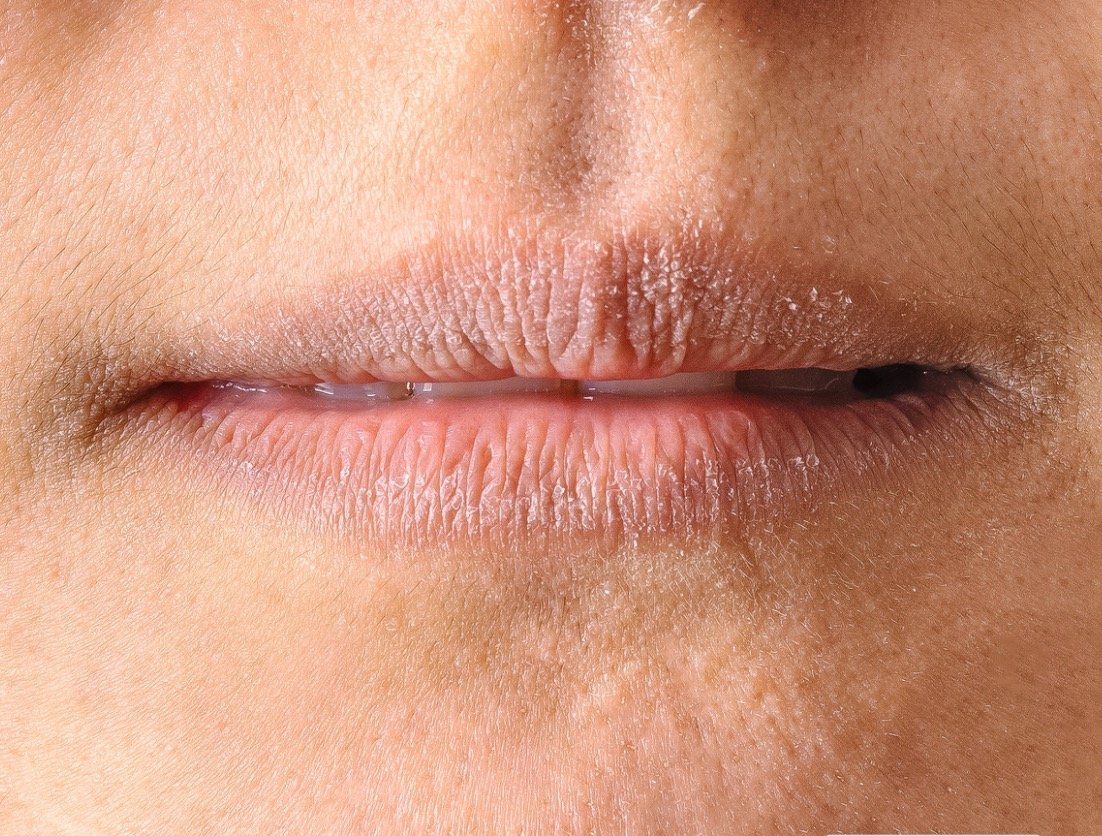Lip Licker's Eczema (Dermatitis)
What is lip licker’s eczema?
When we have dry, cracked, or chapped lips (See Dry Lips), our natural instinct is to lick our lips to moisturize them. Some of us lick our lips out of habit, often without thinking. This is especially true for kids and teens. Lip licker’s eczema (or dermatitis) happens when we end up licking our lips too much. Our saliva (or spit) has lots of enzymes to help digest our food, kill bacteria, and keep our teeth clean, but when those same enzymes are sitting on the skin around our lips, they chew up and irritate the skin.
How do I fix lip licker’s eczema?
You need to come at lip licker’s eczema from two angles at the same time for the quickest results:
ANGLE 1
Do everything in your power not to lick your lips when they are dry or hurt—your saliva is what’s causing the problem! Whenever you are tempted to lick your lips, put on more Vaseline or Aquaphor.
ANGLE 2
Use a very bland, thick moisturizer (Vaseline or Aquaphor) many times a day, with a thick layer at bedtime (no one is going to see you)—the thick layer is a barrier for your saliva if you lick your lips in your sleep.
A few times a day, apply over-the-counter hydrocortisone (hydrocortisone 1% cream or ointment) to the lips and dry, red skin around the lips. I really like the ease of using lip balms that contain hydrocortisone that fit in your pocket or purse (my favorites: FixMySkin, Dr. Dan’s):
What if my (or my Kid’s) lip licker’s eczema isn’t getting better?
Usually, the steps above can help most people get lip licker’s eczema under control. If you have painful cracks at the corners of the mouth, this is called perleche (see Perleche article). Sometimes people have sensitive skin or are allergic to one or more chemicals that touch their lips. When over-the-counter options are not working, there are stronger prescription topical steroids that can be used. Look for a board-certified dermatologist in your area. If you are in or near Utah, see one of my excellent colleagues at the University of Utah or me virtually with Honeydew.
DISCLAIMER
The statements expressed and content of this website are not intended to be a substitute for professional medical advice. Readers should seek their own professional counsel for any medical condition or before starting or altering any treatment, exercise, or dietary plan. Please see our full disclaimer here.

